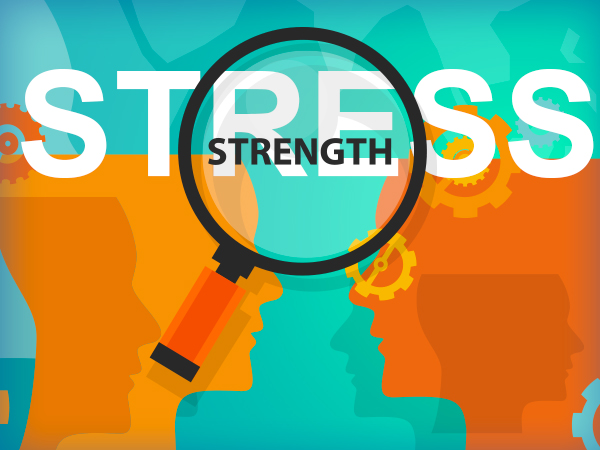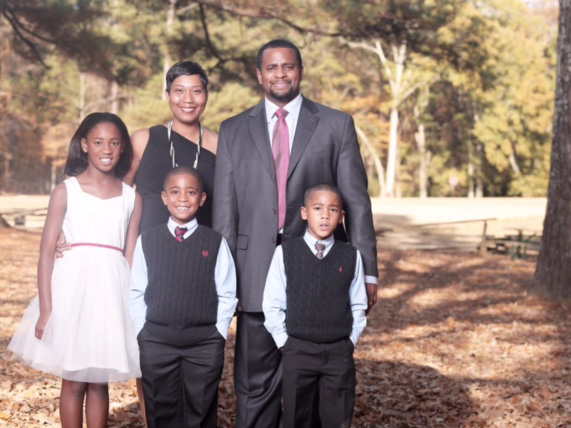Learn resiliency to handle life’s stresses

Published in News Stories on April 13, 2017
Bow up. Get with the program. Grin and bear it. It is what it is.
Just deal with it.
It's what people might tell you when you're facing an adversity or stress that leaves you in uncomfortable and extraordinary circumstances. The way you adapt or change in the face of adversity, however, has everything to do with building the resiliency to withstand it, a University of Mississippi Medical Center wellness educator says.

Burgess
“People come to me because they're dealing with stress, turmoil or adversity in their lives. They're at their worst in being able to respond to that,” said Dr. Danny Burgess, director of the Center for Integrative Health at UMMC and co-director of the Student Counseling and Wellness Center. “They want things to be back to the way they were, or should have been. They're emotionally overwhelmed. They sort of shut down.”
What they're experiencing, however, isn't the problem, Burgess says. Instead, it's their fight against experiencing the bad experience.
Burgess, an associate professor of psychiatry, shared advice on increasing your power of resiliency at a recent campus “Wellness Wednesday” presentation. Among his tips:
Before you're able to do anything, you must have a three-pillared foundation: nutrition, physical activity and sleep. “If those are out of whack, everything else is going to be out of whack,” Burgess said.
Try to get the focus away from the problem. You can't change it. “Focus on how you deal with it,” he said. “Never say, 'It is what it is.' It's such a resignation when you say that. Get that phrase out of your vernacular.
“It's what you make it. When you can change your mentality in the way you think of it, it throws the power back to you, instead of it being out of your reach.”
Burgess' words will help Dr. Chaz Richardson, a fourth-year psychiatry resident, to be a better doctor.

Richardson
“I even took notes at his presentation, because I want to be sure and use what he said with my patients,” Richardson said. “The biggest thing I took from it is that it's not just about when life gives you lemons. It's how you react to the experience. You have to process the information and say 'this has happened' and get through it, but how you react to it is what's important.”
One of the most important components of resiliency is relationships and social support Burgess said. “They have a stress-buffering effect,” Burgess said. “When we're hit with a tragedy or stress, it's much better to be hit if you have someone to absorb it with you. That increases your self-efficacy and your belief that you can do something about the situation, and that change will come.”
That hit home for Stacy Andrews, grateful patient manager in the Office of Development.

Andrews
“It was a reminder that resiliency is not something possessed by the strongest, smartest, or fastest. Instead, it's a description of those of us able to adapt,” Andrews said. “Whether it's trauma, tragedy, stress or just life in general, we all must learn to adapt if we want to survive and be successful.”
Be realistically optimistic, Burgess says. “It's all in how you think and talk about yourself. People think they're in a permanent situation. It's temporary, specific and changeable. It's not insurmountable.”
Driscoll Devaul, director of respiratory care at Batson Children's Hospital, said Burgess helped him better understand “resilience intelligence,” which is a person's aptitude for most efficiently dealing with stress.
“As a health care provider, it's imperative that I demonstrate a positive ability to deal with stress,” Devaul said. “A great point that I took from this presentation was 'how you handle stress dictates success.'”

Members of the Devaul family include, from left, Madison, Kenisha, Joshua, Driscoll and Matthew.
Children, not just grown-ups, need to learn resiliency skills early on, Burgess said.
“First and foremost, it is important to instill a sense of empowerment in children where they feel capable of making decisions and utilizing their strengths,” he said. “If we do everything for our kids as a way to 'protect them,' then they get the sense or idea they are not capable of handling anything. They will learn to overly rely on and depend on others to handle adversity and solve problems.”
Andrews said his son Parker, now 21, sometimes would get bad scores when he competed in martial arts as a child. As an alternative to pouting or quitting, Andrews said, “I told him to approach the judges after the competition and ask what he needed to work on for next time, then simply listen and work on those things.
“He began doing that and training harder,” said Andrews, whose other children are 17 and 10. “Today, he's a professional martial artist who travels around the country competing and teaching seminars to kids.”
Devaul said his children, ages 12, 10 and 8, also can be discouraged when confronted with adversity. “I give them my undivided attention, and I encourage them through positive talk to calm down and think of a way to work through the situation,” he said.
“We lean on spirituality as a way to guide what behavior is correct,” Devaul said. “We encourage them not to be followers, but to be leaders, and to have confidence to know that they have a great support system around them that encourages them to be the best that they can be.”
That supportive home environment is critical, Burgess said. “A child needs to see and know it is safe to be open with their emotions, problems and conflicts, and that they can discuss them in a way that is not punitive or minimized,” he said.
Try to find meaning in your tragedies, Burgess said. “This begins to shift your way of thinking about your stressors,” he said.
“Stressors are challenges in your life to deal with, rather than threats. If you think about it as a threat, then you take a more passive approach, but if you see it as a challenge, it puts you in the driver's seat.”


